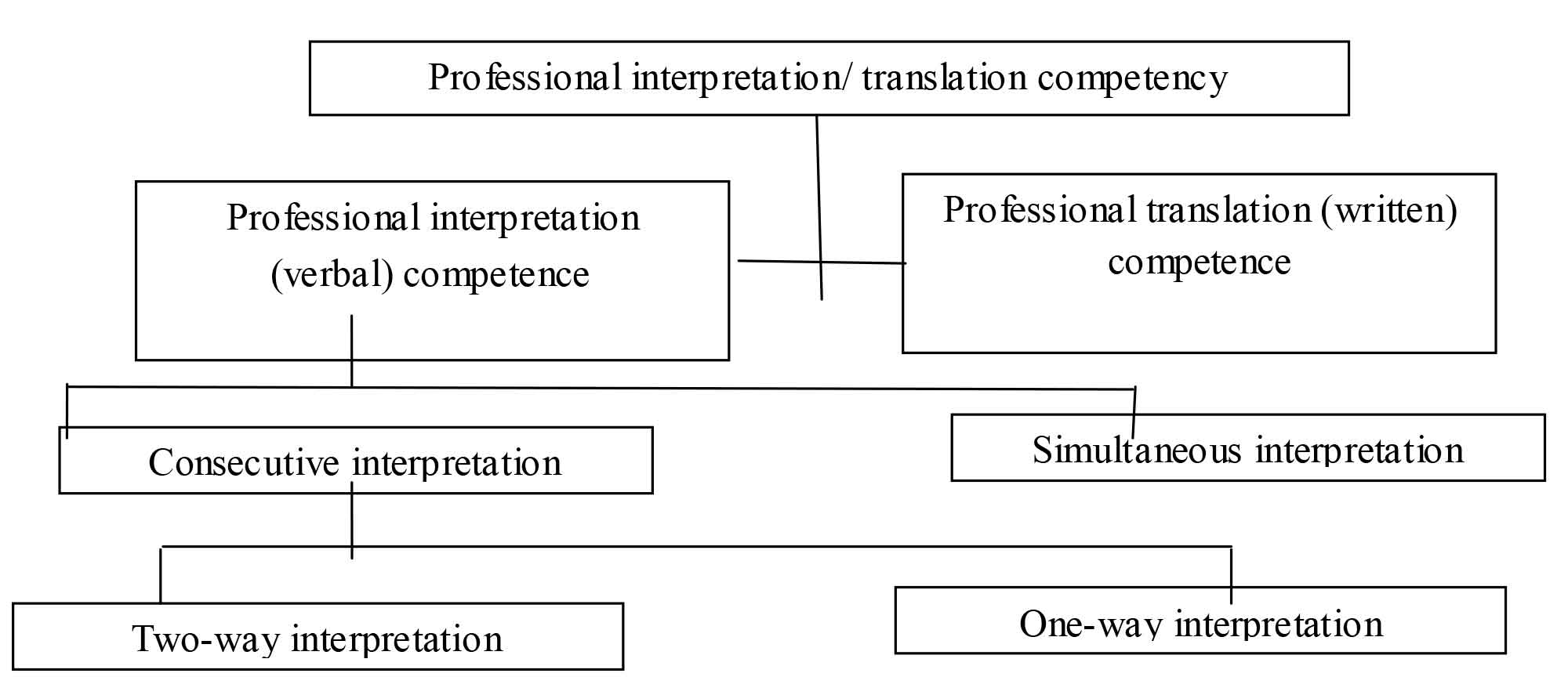«Unexplored facts» in foreign language teaching didactics in military sports institute
Фотографии:
ˑ:
Professor V.Ya. Kolotov
Associate Professor A.I. Kolokolova
Associate Professor I.I. Khotomlyanskaya
S.A. Malkova
Military Institute of Physical Culture, St. Petersburg
Keywords: foreign language teaching, didactics, bilingual interpreting, linguistic code, professional translation competency, language skills, cognitive-communication approach, professional communication process, interpreting activity
Introduction
One of the key missions of a foreign language curriculum designed for any type of educational establishment is to help the trainees master the subject linguistic code and develop the relevant linguistic knowledge and skills [2, 11].
The term communication is well known to mean the information exchange in modern social psychology and information theory, and the actor of information exchange is naturally supposed to be fluent and skilful in the linguistic code application process to be able to code the relevant content as required by the phonetic, lexical and stylistic standards of the subject language; and such mastery and skills are known to be imperative for successful translation/ interpretation activity [10].
The linguistic academic curriculum will be designed – putting it in the traditional military colloquial terms – to arm the cadets with at least the survival linguistic minimum as required by the well-known mathematical principle of necessary and sufficient case. Necessary case in this sense is the backbone language regularities that need to be mastered by the cadets within the relevant language domain, and all the other knowledge and skills will be acquired and developed in a natural manner through persistent work with the authentic and adapted texts in an artificial language environment, i.e. in the free flow of the language as such [9].
This approach, however, fails to factor in one of the fundamental principles of the general methodology and theory of systems that implies an integration being always associated with a differentiation as its antipode [3]. This notion is apparently supported by the wide and persistently expanding variety of the so-called alternative methods (e.g. Total Physical Response etc.) in the attempts to facilitate and cultivate what is termed as grammaticalization of the profession-focused dialogue/ monologue speaking fundamentals [9]. As things now stand, this process is designed and managed within the frame of the model structure of a foreign language method recommended for application by the relevant European Council directive of 1982 for most foreign language courses in Europe. This frame method shall in no case be considered mandatory as it rather offers a base model that can and should be modified and improved whenever necessary [7]. In the context of the above alternative methods, it may be pertinent to mention cognitivism that is focused on the teaching and personal development process goals rather than on the language knowledge and skills as such.
Objective of the study was to offer an interpretation mastering methodology as the mean to form the communicative competences in the cadets of Military Institute of Physical Culture (MIPC). It is the methodological tools and education techniques spelled out in the main provisions of the articles [1, 6] that will, in the context of the present study, be considered the means and ways to form and shape up the thinking culture in students.
Study results and discussion
The scope of professional responsibilities on the whole and emergency-situation responsibilities in particular of the Russian Armed Forces Physical Training (RAF PT) specialists require them being able to efficiently discuss and solve a wide variety of professional service matters in direct service contacts with their foreign peer specialists including military service personnel of foreign armed forces involved in one or another coalition. This means among other things that the relevant PT specialists shall be fluent enough in verbal communication in foreign language to be able to solve every issue of the professional military cooperation in a timely and all-inclusive manner.
Professional responsibilities of the Military Institute of Physical Culture graduates are specific in the sense that it is imperative for them to be fluent and skilful in the two-way interpretation, and this is a prime reason for this article (in its limited format) to give a top priority to the professional communication (as a frame interpretation medium) skills of an interpreting military PT specialist.
For the purposes of the two-way interpretation skills being duly mastered, professional interpretation competence in the relevant interpretation/ translation domain must be formed (the term professional means herein the language proficiency within the relevant professional field). Therefore, a professional interpretation competence within the frame of a two-way interpretation process will be viewed as an integral component of the general professional interpretation/ translation competency understood as the specialist’s ability to flexibly and skilfully apply the required form of translation/ interpretation in any situation that may come up in his/her professional career.
The general professional interpretation/ translation competency will include a set of constituent competences in different forms of translation/ interpretation fields (see Figure 1 hereunder) that imply the specialist having the relevant knowledge and skills in every type of verbal/ written one- or two-way translation/ interpretation process.

Figure 1. Professional interpretation/ translation competency
The professional interpretation competence formation in the two-way interpretation domain is possible only when the specialist’s verbal communication competence is persistently excelled based on the knowledge of the relevant special subject plus proficiency in both of the languages to develop necessary fluency in the professional bilingual communication. It is beyond doubt that the abilities and qualities of that kind will be developed based on the knowledge and skills obtained at primary school and then built up and excelled by an academic linguistic course at the military university as this is a common and natural process for the background professional thesaurus being formed by a bilingual PT specialist [5].
The professional interpretation competence in the two-way interpretation domain means herein the bilingual military specialists’ ability to perform high-quality two-way interpretation. Structurally, the professional interpretation competence in the two-way interpretation domain may be represented as composed of the following three components: basic, technological and professional personality component (see Figure 2 hereunder).

Figure 2. Professional interpretation competence in the two-way interpretation domain
The basic component will include the basic knowledge, skills and qualities imperative for the prime two-way interpretation ability, i.e. the linguistic and special professional knowledge plus the interpretation culture and proficiency based on the relevant verbal communication technology, bilingual switchover mastery, goal-driven communication skills etc.
The technological component of the professional interpretation competence means the interpreter’s ability to skilfully apply the relevant technical tools in the interpretation process, including the descriptive interpretation; generalizing; antonyms-applying interpretation; and special interpretation skills and qualities including the verbal transformation skills, keywords-identification skills; integrated transformation applying skills etc.
The professional personality component means the interpreter’s personality being highly developed in terms of the relevant ethical standards and culture supported by due timing/ pacing standards of the bilingual speaking skills [7, 8].
The key requirement to and the main information value of an individual bilingual interpretation proficiency is its high accuracy in the key content of the original message being verbalized. It is also very important for the outcome interpretation wording to be rather flexibly designed with due regard to the structural mismatches of speaker’s and listener’s languages than be totally identical to the original message in a literate word-by-word sequence. Therefore, the two-way interpretation may be viewed as a communication process including the following key components: source of information/ speaker; message; message-coding converter; communication channel; message-decoding converter; and the converted message. The interpreter will act in this process in a few key roles: as communication channel, message-receiving and message-delivering agent [4, 10].
It should be also noted in this context that the two-way interpretation requires excellent memorizing skills and concentration from the interpreter, the demand for these qualities being particularly high when the constituent segments of the source speech are long enough [11].
Conclusion
The proposed two-way interpretation mastering methodology in application to the military sport university students is designed with due consideration for the curriculum content, education process structure and the experimental test data for the methodology.
Having considered the psycho-linguistic and linguistic requirements to the special two-way interpretation, we would make a preliminary conclusion that it is a cognitive-communication approach that could be used as a scientific and theoretical basis for the education process.
The cognitive-communication approach as a basis for the curriculum will, on the one hand, provide the means for conscientious digesting and learning of professional, linguistic, country-specific, cultural and aesthetic knowledge elements to satisfy the cognitive interests of the trainees in the interpretation technique mastering process; and, on the other hand, provide a theoretical support for the communication-technology-based foreign language learning process.
The two-way interpretation curriculum will be designed with a due emphasis on the communicative and speaking skills development process, with the objective of high-quality interpretation that should present the ready text in a harmonic balance with the cognitive component. The interpreting activity may be – as well as other verbal activity – both an objective and an education tool both for itself and for any other kind of linguistic communication.
References
- Gal'skova N.D. Osnovnye paradigmal'nye cherty sovremennoy metodicheskoy nauki (Key paradigmatic features of modern methodical science) / N.D. Gal'skova // Inostr. yazyki v shkole. – 2011. – № 7. – P. 2–11.
- Gal'skova N.D. Teoriya obucheniya inostrannym yazykam: Lingvodidaktika i metodika (Theory of teaching foreign languages: Linguodidactics and methods) / N.D. Gal'skova, N.I. Gez. – Moscow: Academia. – 2004. – 336 p.
- Gorlova N.A. Tendentsii razvitiya metodiki obucheniya inostrannyim yazyikam: ucheb. posobie (Tendencies of development of methodology of teaching foreign languages: study guide) / N.A. Gorlova. – Moscow: MGPU (MSPU), 2010. – 212 p.
- Kitaygorodskaya G.A. Metodicheskie osnovy intensivnogo obucheniya inostrannym yazykam (Methodological bases of intensive foreign language teaching) / G.A. Kitaygorodskaya. – Moscow: MGU (MSU), 1986. – 176 p.
- Nikonova L.A. Razvitie initsiativnoy rechi uchashchikhsya na urokakh angliyskogo yazyka (Development of initiative speech of pupils at English lessons) / L.A. Nikonova // Inostr. yazyki v shkole. – 1996. – № 2. – P. 37–38.
- Passov E.I. Metodika kak teoriya i tekhnologiya inoyazychnogo obrazovaniya (Methodology as theory and technology of foreign language education) / E.I. Passov. – B. 1. – Elets: Tipografiya, 2010. – 543 p.
- Ushakova T.N. Rech kak kognitivny protsess i kak sredstvo obshcheniya (Speech as cognitive process and communication method) / T.N. Ushakova // Kogn. psikhol.: Mater. fin.-sov. simp. – Moscow: Nauka, 1986. – P. 131–143.
- Hellmich H. Die Didaktik des Fremdsprachenunterrichts als integrative Wissenschaftsdisziplin. – In: Deutsch als Fremdsprache (17), 1980. – H. 4. – S. 218–224.
- Krumm H.-J. Interkulturelles Lernen und interkulturelle Kommunikation. // Handbuch Fremdsprachenunterricht / K.-R. Bausch u.a. (Hrsg.). – Tübingen: A. Franke Verlag, 1995. – S. 156– 161.
- Kumaravadivelu B. Individual Identity, cultural Globalization, and Teaching English as an International Language: The Case for an Epistemic Break // Principles and Practices for Teaching English as an International Language / ed. Alsagoff L. et al. – ESL & Applied Linguistics professional Series/ ed. Hinkel E. – US.: Routledge, 2012. – P. 9–27.
- Quesada A. Global Education in a Connected World // Technology & Learning. – 1996. – N 17 (1). – P. 24–28.




 Журнал "THEORY AND PRACTICE
Журнал "THEORY AND PRACTICE